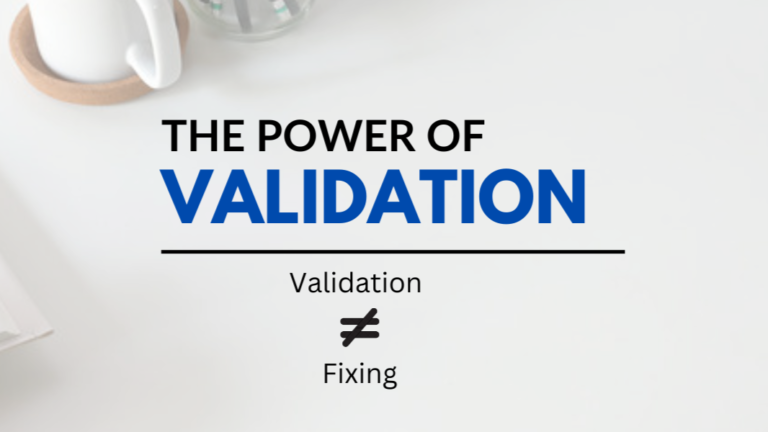They want us paralyzed – Let’s heal together and rise stronger
 We now find ourselves in the difficult circumstance of having to live on a planet, the only alive planet that we know of, that is in deteriorating health which we have been complicit in causing. We suffer the guilt and shame of knowing what we have done, and thanks to science (and, increasingly, our own senses) we know how what we have done has damaged the planet. We must now live with not only the consequences of the damage, but also our sadness, fear for the future, anger at the complicit powerful, and our grief, horror, disgust, despair, and hopelessness. While not the most uplifting of reads, this page will explain some of the important new concepts around climate change and mental health. We’ll identify some ways individuals can support themselves through climate-related feelings, explore how seeing a therapist for your concerns can help, and explain why it’s important to get help with climate-related feelings: Not only for yourself, but so you can be there for planet Earth – and the future of the life it allows.
We now find ourselves in the difficult circumstance of having to live on a planet, the only alive planet that we know of, that is in deteriorating health which we have been complicit in causing. We suffer the guilt and shame of knowing what we have done, and thanks to science (and, increasingly, our own senses) we know how what we have done has damaged the planet. We must now live with not only the consequences of the damage, but also our sadness, fear for the future, anger at the complicit powerful, and our grief, horror, disgust, despair, and hopelessness. While not the most uplifting of reads, this page will explain some of the important new concepts around climate change and mental health. We’ll identify some ways individuals can support themselves through climate-related feelings, explore how seeing a therapist for your concerns can help, and explain why it’s important to get help with climate-related feelings: Not only for yourself, but so you can be there for planet Earth – and the future of the life it allows.
Definitions:
Eco-Defense Mechanisms: Ways to defend against climate-related stress. You can learn about these by coming to counselling.
Eco/Climate-Anxiety: Feelings of fear, concern, or guilt resulting from knowledge or experiences around the changing climate and ramifications. This can range from fleeting thoughts to debilitatingly constant.
Eco-Paralysis: Overwhelm that comes from the scale of the problem and leads to helplessness or inaction.
Eco/Climate Grief: Intense sorrow for the changes or impacts to the world that are due to climate change (e.g. extinctions, destroyed landscapes, rampant diseases).
Eco-Rage: Intense anger at those who we blame for ecocide and climate change. Eco-rage can also develop out of frustration around perceived powerlessness.
Pre-Traumatic Stress: Anticipatory anxiety or dread about future climate-related disasters or societal collapse.
Climate/Eco-Denial: Occurs when knowledge about the impacts of climate change are avoided or denied, including when one spreads mis-information. Often occurs when new information of dire consequence is received.
Climate Doomism: A belief that catastrophe is inevitable. Often leads to despair, inaction, or nihilism.
Climate/Eco-Dissociation: Disconnecting from nature, either physically, emotionally, or mentally. This can be conscious or subconscious. This can be healthy (avoiding news), or unhealthy (discounting the views of scientists based on a perception of their political views).
Climate Trauma: Experiences or knowledge related to climate change which exceed one’s ability to cope. Often associated with intense distress, but it can also manifest in dissociation/shock/numbness.
Anthropocene Trauma: A more general term for the traumas we experience as a result of being in the Anthropocene (the current age, characterized by human dominance and human-caused environmental degradation).
Moral Injury: The distress that arises when people feel complicit in environmental harm or powerless to prevent it. While generally more intense for people who are deeply invested philosophically (scientists, activists) the experience of moral injury can also be powerful in lay folx. People displaced or injured by climate change are more likely to experience climate-trauma or climate-grief.
Polycrisis: Describes multiple interconnected crises occurring at the same time, e.g. climate change, increasing political instability and wealth inequality, and mass displacement/migration.
Healthy Ways to Manage Climate-Change Related Feelings:
- Assess your level of distress: If you’re in intense distress, you likely need immediate soothing and/or support. Seek counselling, talk to someone you trust, or self soothe with relaxation techniques or other self-care strategies such as a bath, engaging in a hobby/craft, cooking/eating something you like, visiting a special place, or engaging in spiritual practices. You can also rely on habits that you know work for you, even if they aren’t particularly healthy or environmentally friendly; you will be well equipped to pursue greater wellness and environmental actions once you’re feeling a little better. If your distress has been present for a while and you’re feeling overwhelmed, burned-out, or exhausted, it’s time to take a step back from the grind: Book a day or week off work or school, or delegate household responsibilities to someone else; if you can only manage to find an hour or two, that’s better than nothing. Be sure to take care of your biological and social needs as your priorities: Eat well (healthy, variety, regularly, and adequately), get as much sleep as you need, connect socially when you feel like it, and take time for yourself when you feel you could use it. When you feel well-rested, nourished, and relatively in balance, engage in the following:
- Identify and explore your feelings. It might help to use an emotions wheel to find words to describe your specific feelings (the wheel is available at the bottom of our resources page).
- Written processing: Write down your thoughts. If you suffer from eco-anxiety, list your concerns. If you can, use creativity to write stories or poems, and use metaphors to describe your feelings. You could write a letter to the a politician, to an animal or plant, to a polluting company, or to yourself. Only engage in writing about distressing feelings if it feels therapeutic for you. If writing is making your feelings snowball out of control, please stop and try something else. Imagining a positive future can be helpful for you, but from a “big picture” perspective, doing this is also essential if we are to survive into the future.
- Therapeutic sound: Nature sounds are inherently healing, as is nature imagery. Ideally, go somewhere where you can see and hear nature all around you, e.g. a forest trail, beach, or waterfall. At home, you can use YouTube or meditation apps to bring nature to you. “Soundbath” tracks are also helpful. Manmade music sounds are technically nature sounds too, but focus on soothing sounds (gentle, relaxing music, or singing bowls, bells, chanting). If you’re up for being a music-creator, using a drum (even tapping fingers on an upturned bucket) is a great way to use the body to cathartically produce sound as you’re processing emotions.
- Seek support: Many people suffer with climate feelings. The most effective way to get the right support for your unique experience is to go to counselling; we can help connect you with other services if BestQuest isn’t right for you. Remember that counselling is for everyone, not just those in crisis or without social support. Read the last paragraph to learn how counselling can help, and view our Climate Change Counselling page to read more about counselling for climate-change related feelings. You can also seek groups and organizations that focus on supporting each other through this issue, such as Climate Awakening, or the Good Grief Network.
- Service work: This usually refers to serving others, but taking care of our planet (or our home environment) is equally important. Being of service (in this case to the planet) is one of the best medicines. It helps us feel connected and can be extremely soothing and motivating. This can be done individually (we offer lifestyle change consultations if you’re wanting to make changes at the individual level; book a consult), or through organized group action. There are many organizations who can provide you with volunteer opportunities. We don’t recommend this for treating intense sadness, fear, or anger (in these cases, please book a consult for counselling).
- Meditation: All forms of meditation support mental health. Not to be done during intense emotional distress. We suggest a compassion meditation such as this one on YouTube: Tara Brach Compassion Meditation. Loving Kindness Meditation is also a great option when you have the equanimity and mindset to direct positive feelings outward. Keep in mind that meditation can be challenging; seek guidance if you’re new to it, and always, always, lean towards self-compassion rather than judgement.
- Seek pleasure, joy, and flow. Pleasure seeking gets a bad rap in our status-conscious, productivity-obsessed society. It is however the essence of life energy and is so important in helping us through difficult times. Don’t chastise yourself; do what feels good for you. Pay attention to when your in flow, and roll with it. Have sex, rewatch your favorite sitcom, and wear your pyjamas to the grocery store.
- Be aware of the Seven Types of Rest. If sleep is the only type of rest you get, you have some personal work to do.
- Be discerning when consuming media. News services often have biases, and they’re intentionally alarmist because we’re more like to consume more of what they’re peddling (views) when we’re scared/angry. Remember that large media organizations employ teams of psychologists who’s job it is to figure out ways to emotionally manipulate us. Be discerning and seek information from scientific rather than popular media sources. My go to is the Union of Concerned Scientists, but proceed with caution; as the name suggests, this site reports uncensored realities that are distressing. Consider your emotional state and capacity for coping before going here. For tips on what individuals can do to make a difference, check out this site. For local information on climate change effects, try the Climate Atlas of Canada.
- Focus on what is within your control. The psychological benefits of making small changes that support sustainability cannot be understated. My research suggests that the most impactful changes individuals can make to support the planet are relatively simple. Click these links to learn why each of these are so significant: Reduce consumption of animal products; reduce use of gas powered vehicles; avoid buying products packed in plastic; shop local.
How Counselling Can Help:
One of the main differences between treating generalized anxiety/depression versus climate-feelings is that climate change is a reality we are constantly faced with, and we are right to be anxious/concerned/angry/grief-stricken/overwhelmed. These feelings may need to be acknowledged, and so do the circumstances behind them! Many of us are sick to death of the avoidance of these issues (although sometimes this is necessary for our own wellbeing). Sure, we can repress everything, eat another big mac, and live another day (for now), but who does this serve? Getting counselling from a climate-change informed professional can help you better understand your difficult climate-related feelings and help you manage the resulting stress and burnout.
Some people are more interested in forward action than processing their emotions. It’s important to consider the long-game here (e.g. political activism feels great, but it can be grueling and exhausting). Seeking guidance for your personal energy investment can help you strategize, explore the connections between your values and actions, and give you skills to maximize your potential. We can all make changes that support the planet, but this is best done in a thoughtful way, born out of a place of equanimity, incorporating an awareness of your own particular strengths, the wisdom of of psychology, the intuition of the natural world. A good nature and climate informed therapist can support you in reconnecting to yourself and the planet, help you navigate complex emotions and life challenges, and guide you in how to direct the energies you have for supporting the planet. What people learn through climate-change related feelings in therapy can be transferrable into their professional, spiritual, and social worlds also.
Many people have acute awareness of climate challenges, but struggle with inaction and/or feel alienated from others who don’t share their level of concern. Others just want to be able to keep up with the news without burning out (or disconnect from the news without feeling guilty or judged). Whatever you want to work on, good therapists are available to support you.
I have personal experience with climate-change related feelings, as well as dealing with future-shock. I also have practical knowledge and lived experience regarding how to adapt your lifestyle to cause less harm and live more sustainably. Please contact me if you need support, and to find out about the climate related mental health services we provide. 
External Links:
Understanding Eco-Anxiety: Coping with Eco Anxiety – Mental Health Commission of Canada
Why Eco-Anger is a Good Thing: Anger is the Most Effective Emotion for Inspiring Climate Action







